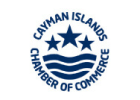Bermuda Sun highlights ‘labour limbo’
by Steve on September 23, 2010
In this excellent article from the Bermuda Sun, James Whittaker exposes the plight of Bermuda’s own middle class, as well as that of low-income expatriates.
Although much of the commentary and analysis could apply equally in the Cayman Islands and BVI, the cost of rent at the high end is not a factor in Cayman or BVI (yet). There are very few companies in Cayman (anymore) for whom “money is no object”. But the real differences are the supply of land in Cayman and BVI, which is relatively abundant compared to near-fully developed Bermuda (the population of Bermuda is 20% higher than Cayman on 1/5 as much land at the time of this article), and the understandably draconian restrictions on construction and property ownership in Bermuda (in Bermuda “mere mortal” expats are not permitted to own property, whereas in Cayman there are no restrictions).
Bermuda trapped in labour limbo?
The article speaks to a divide between the “haves and have-nots” that exists throughout the Caribbean offshore and Bermuda (and to a degree in Hong Kong) where financial professionals (and, thankfully, their service providers) are competing with the best in the world and many others are competing with developing nations for all intents and purposes. This keeps wages high in financial services (because professional ex-pats expect a premium to relocate halfway around the world) and low in many other lines of work (because many other ex-pats are glad to be earning any amount in solid currency in a stable and safe western economy).
Is this solely a ‘Bermuda’ issue?
Although this tension exists in many G20 nations, most notably the United States where Mexican immigrants are vilified for “taking American’s jobs”, there are differences.
For starters, the immigration of cheap labour is state-sponsored in Cayman, Bermuda and BVI, whereas most of the very lowest-paid workers in the US and Europe are likely to be in the country illegally, which allows unscrupulous employers to flout minimum wage laws. This creates more public angst in offshore communities who rightly expect the government to address the imbalance through regulation or enforcement activity.
The ironic benefit
The irony, if such a word in this context is not distasteful, is that it is the local community that benefits from the cheap labour provided. Domestic help is a prime example. How many Caymanians and Bermudians are able to pull in two good salaries because of the high disparity between the second income and the cost of childcare? How many local business owners benefit from the low cost of payroll? And to the extent, the savings are passed on to consumers (they are not always), how much more would residents pay for goods and services if not for those willingly subsidising them by their squalid living standards.
This is precisely why local politicians are loath to set a minimum wage that might address the issue or clamp down on squalid living standards (which in Cayman at least are effectively illegal when sanctioned by employers).
It is frequently pointed out that squalor is a relative term. Nobody forces anyone to emigrate to the Cayman Islands or Bermuda and nobody dictates the standard of accommodation they should obtain when they arrive. People at all levels of the social spectrum come here for one reason: they are better off. But there are two good reasons authorities ought to be more concerned with such immigrants’ standard of living.
- First, many low-income immigrants choose to live in squalor to send their savings home to families in developing countries. This is a drain on the local economy.
- Second, the willingness of immigrants to live in sub-standard accommodation is an indirect means of disenfranchisement for local workers who do not and should not expect to live this way.
Employers know full well how much a person needs to earn to get by in the Cayman Islands or Bermuda and full well when an employee makes less than that. They should not turn a blind eye to the living conditions of their workers. Neither should the authorities.
SHARE THIS ARTICLE
Recent Articles









